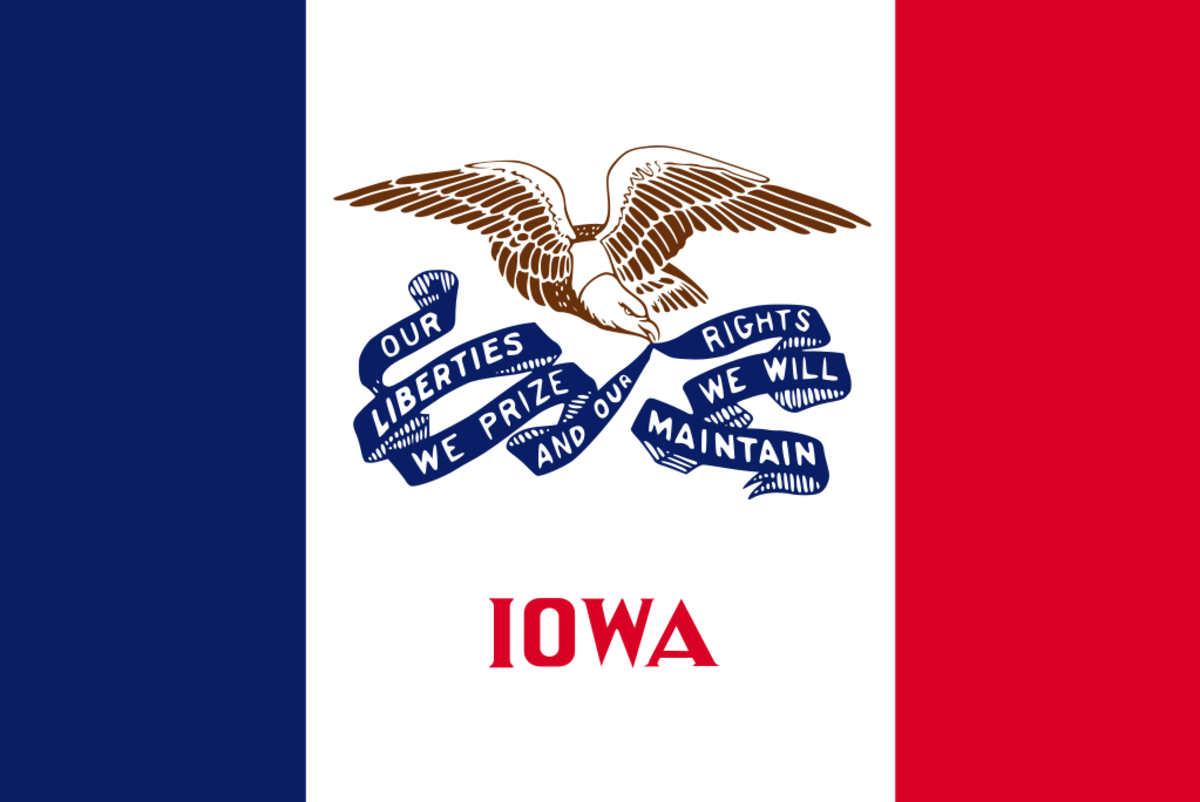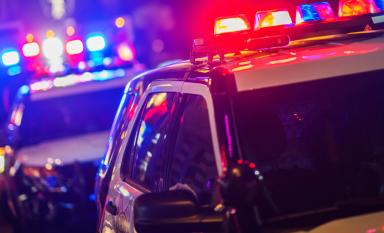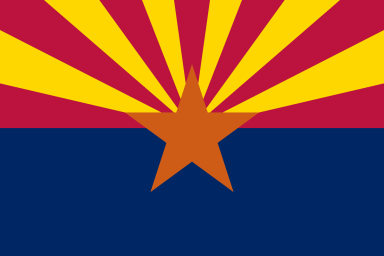Iowa DUI Laws

By the end of 2022, the Iowa Department of Transportation had recorded a total of 338 traffic fatalities throughout the state. More than 30% of these involved impaired drivers, with 40 out of the 100 alcohol-related deaths occurring during the last few weeks of summer between August 1 and September 4. In terms of revocations, more than 14,200 drivers were penalized for operating a vehicle while under the influence of alcohol. Polk and Johnson counties logged the most significant number of revocations at 1,892 and 1,196, respectively.
As part of its efforts to protect Iowans and prevent accidents caused by alcohol intoxication, the state government works with local organizations on different programs to raise awareness against drunk driving. One example is the Drive Sober or Get Pulled Over project, which involves the Iowa Department of Public Safety and other agencies enforcing laws geared against impaired driving and removing drunk and drugged motorists from state roads.
This article will offer basic insight into various laws and other statutory guidelines that are taken into account in legal proceedings if a drunk driving accident case results in a lawsuit.
Iowa’s General DUI/OWI Laws
Like all other states in the country, Iowa has several laws that prohibit motorists from driving while impaired. A DUI charge, which is referred to in the state as “operating a vehicle while under the influence of alcohol or a drug,” is imposed upon a person whose blood alcohol concentration level is equal to or higher than 0.08%. This legal threshold is even lower for commercial and underage drivers, who will be convicted if their BAC level reaches or exceeds 0.04% and 0.02%, respectively.
A motorist does not necessarily have to be driving to be convicted in Iowa. Under state law, a person is "operating" a vehicle if the engine is running, even if they are just sitting inside it while it is parked. As such, if one is intoxicated in this context, a DUI/OWI charge can apply. Additionally, a judge or jury in the state can still declare that a driver is under the influence of alcohol, regardless of their BAC level, if:
The driver’s mental ability or reasoning is affected
The driver is not capable of controlling their bodily motions or functions
The driver shows signs of impaired judgment or excited emotions
Any person who is convicted of DUI/OWI will face a variety of penalties, ranging from fines and jail time to license suspensions. Those who have multiple offenses or a high BAC level will face higher sanctions; the same counts for those who end up causing a motor vehicle accident that injures or kills another person.
Implied Consent in Iowa
In Iowa, any driver who is suspected of operating a vehicle while under the influence of alcohol is deemed to have given their consent to undergo a chemical test that will determine what their BAC level is. This test will analyze either their blood, breath, or urine, and it will be administered upon the written request of a law enforcement officer who has sufficient reason to believe that they are intoxicated. A test is also warranted if:
The driver was placed under arrest for a DUI/OWI infraction
The driver was involved in an accident that resulted in another person’s injury or death
The driver failed a preliminary breath test or refused to take one
Any person will be convicted in violation of Iowa’s implied consent law if they refuse to be tested. As a result, they will face other penalties along with any sanctions resulting from their DUI/OWI offense.
What Are the Penalties for a DUI in Iowa?
If a driver in Iowa is charged with DUI/OWI, their penalties can get worse depending on how many times they have broken the law before. The same applies if there are aggravating factors present when a motorist commits an offense. These can include:
Having a BAC level of 0.15% or more
Being labeled a habitual offender
Committing a DUI/OWI offense with a child in the vehicle
Causing an accident that results in another person’s injury or death
DUI/OWI infractions are classified differently, with each classification having its own set of sanctions.
A DUI/OWI offender can also be required to complete a substance abuse evaluation and an inpatient treatment program. The court can decide on the duration of the treatment or leave it to the discretion of the provider. An offender will have their jail time reduced based on how long they have spent under the program, and they typically shoulder any fees related to their treatment. Additionally, they must engage in post-treatment services or complete a substance abuse prevention program as part of their probationary period.
If a motorist violates Iowa’s implied consent law by refusing to submit to a chemical test, their license will be revoked for one year on their first offense and two years on their second and subsequent offenses. They will also be fined up to $200 as a civil penalty.
Lastly, those who are charged with underage DUI/OWI in Iowa face a different set of penalties, but only if their BAC level is less than 0.08% and more than 0.02%. If this happens, their license will be suspended for 60 days on their first violation and for 90 days on their second violation. If their BAC level exceeds 0.08%, they will be subject to the same penalties imposed upon criminal DUI/OWI offenders.
Iowa’s Dram Shop Law
Iowa has a dram shop law, which states that if a drunk driver causes an accident and hurts someone, the injured person can also sue the restaurant, bar, or liquor store for selling or serving alcohol to the drunk driver in question. This law will apply if an establishment sells or serves alcohol to a driver even if the latter is already visibly intoxicated, or if it overserves the driver, whose inebriation results in a vehicle crash.
The same law allows victims of accidents caused by underage drunk drivers to sue another person for serving alcohol to the driver, even if the person is not officially licensed to do so. People who fall into this category often include social hosts at parties or gatherings. They can be held liable if they give alcohol to an underage driver despite knowing that the latter is already drunk or will consequently become intoxicated.
Iowa’s Dram Shop Insurance Requirements
To ensure that stores, restaurants, and bars can cover any damages if an intoxicated patron causes an accident, the state requires them to obtain and maintain dram shop insurance as proof of their financial responsibility. This policy should be purchased as part of an establishment’s requirements when applying for an on-premises alcohol license, and it must be updated on an annual basis whenever the license is renewed.
It should be noted that dram shop insurance policies cannot limit or place an aggregate on the total settlements that can arise from an incident for the life of the policy. Additionally, the offender who causes an accident will not be covered.
According to state law, the following are the minimum coverage requirements for dram shop insurance:
$50,000 for the bodily injuries or death of one person
$100,000 for the bodily injuries or deaths of multiple people
$25,000 for loss of support coverage for one person
$50,000 for loss of support coverage for multiple people
How Much Can Someone Sue For a Drunk Driving Injury in Iowa?
Iowa does not have any statutory limitations on recoverable compensatory damages in most personal injury cases. As such, victims of drunk driving accidents can obtain the maximum amount of settlement for their losses from the at-fault parties. The compensatory damages they can receive may involve both economic and non-economic losses, such as:
Expenditures for present and future medical treatments
Repair or replacement costs for damaged property
Lost wages or loss of earning capacity
Pain and suffering
The loss of enjoyment of life
Emotional distress
Meanwhile, in dram shop cases, Iowa law states that the total amount of non-economic damages awarded to the plaintiff will be limited to $250,000. This damage cap is only waived if the jury declares that such a limitation would deprive the plaintiff of their lawful compensation in case the accident leads to death, substantial disfigurement, impairment, or permanent loss of bodily function.
In addition to compensatory damages, plaintiffs in drunk driving accident cases can request punitive or exemplary damages in a lawsuit. In general, these damages are awarded to punish a defendant more than compensate a victim, and they are imposed only if the following factors are present:
The court finds enough evidence that the defendant showed a wanton or willful disregard for the safety of other people
The defendant’s conduct was specifically directed towards the victim of the incident
Unlike compensatory damages, the total punitive damages that can be awarded in a case in Iowa vary depending on these specific requirements:
If both of the aforementioned factors are present, the court or jury will award the plaintiff the full amount of punitive damages.
If the defendant’s actions were not specifically directed towards the plaintiff or the victim from whom the plaintiff’s claim is derived, the court or jury will award only 25% of the total punitive damages to the plaintiff, with the rest being paid into a civil reparations trust fund.
Modified Comparative Negligence in Iowa
While Iowa has no damage caps for drunk driving accident cases, the state’s modified comparative negligence rule can affect the total damages that plaintiffs can recover. This legal principle dictates that any plaintiff who is partially liable for the accident that caused their injury will have their recoverable damages reduced based on the percentage of their apportioned fault.
For example, if a person was speeding along a highway when an intoxicated driver crashed into their vehicle, the court could determine that the former was 25% liable for the accident due to their actions. If the victim’s total awarded damages are worth $200,000, they will only receive $150,000 after 25% has been deducted accordingly.
Lastly, under Iowa’s modified comparative negligence rule, a plaintiff will be barred from recovering any damages if the court finds that their fault is equal to or greater than 50%.
The Statute of Limitations in Iowa
Drunk driving accident victims in Iowa have up to two years to file a suit against an offending motorist, following the state’s civil statute of limitations. The statute begins on the date of the accident that caused the victim’s injury. Those injured by an employee, officer, or agent of a municipality also have two years to take legal action.
If a drunk driving accident results in a victim’s instantaneous death, the same two-year deadline applies if their dependents or representatives wish to file a wrongful death claim. However, if a victim dies from their injuries during the one year immediately before the expiration of the statute of limitations, state law dictates that any dependents or representatives will have up to one year after the person’s death to file a suit.
Exceptions to Iowa’s Statute of Limitations
There are some exceptions that delay or pause Iowa’s statute of limitations, granting drunk driving accident victims more time to take legal action. For instance, if an offender does not live in the state or their identity cannot be determined after diligent attempts were made to discover it, the statute will not count the period of the person’s nonresidency or the time when they could not be identified as part of its duration. The latter instance counts for a person who injured other people through a felony or indictable misdemeanor.
Other notable cases occur if the person who is entitled to file a suit or claim is below 18 years old or deemed incompetent due to mental illness. Under state law, such a person will have up to one year after they reach the age of 18 or recover from their condition to take legal action. However, this exception does not apply in lawsuits or claims against a government employee, agent, or officer.
Resources for Folks Injured by an Impaired Driver in Iowa
Iowa State Bar Association
The Iowa State Bar Association provides legal assistance to people through the services offered on its website. Iowans can use the Find-A-Lawyer service to search for an attorney based on their location and practice areas, which include personal injury and criminal law. Each attorney in the website’s directory is available for a 30-minute preliminary consultation, which costs a maximum of $25. The website also has a variety of resources available, including “Ask an Attorney” videos that provide Iowans with a basic understanding of topics such as car accidents, lawyer fees, and Medicaid qualifications.
Iowa Department of Transportation - Crash Reports
The Iowa Department of Transportation is open to any motorist seeking to report an accident, which is required if it resulted in any injuries, deaths, or property damage worth at least $1,500. Those involved can download and complete the Accident Report Form from the department’s website and mail it to the Systems & Administration Bureau at the address provided. Additionally, people who wish to obtain a copy of an accident report can do so by completing and printing the request form on the website and submitting it to the same address along with their driver’s license number, mailing address, and the date of the accident. A copy costs at least $4, with an additional 50-cent charge for each report.
Mothers Against Drunk Driving - Iowa
Mothers Against Drunk Driving is a national organization that raises awareness against impaired driving and offers aid to victims of alcohol-related automobile accidents at no cost. Its team assists Iowans in addressing the technical aspects of legal proceedings by helping them prepare statements and informing them of their options in an injury claim or lawsuit. It also refers people to local law firms for legal representation, provides access to resources relevant to their case, and helps victims seek emotional support among local groups and advocates.
Expertise.com StaffAuthor
Step into the world of Expertise.com, your go-to hub for credible insights. We don't take accuracy lightly around here. Our squad of expert reviewers, each a maestro in their field, has given the green light to every single article you'll find. From rigorous fact-checking to meticulous evaluations of service providers, we've got it all covered. So feel free to dive in and explore. The information you'll uncover has been stamped with the seal of approval by our top-notch experts.




